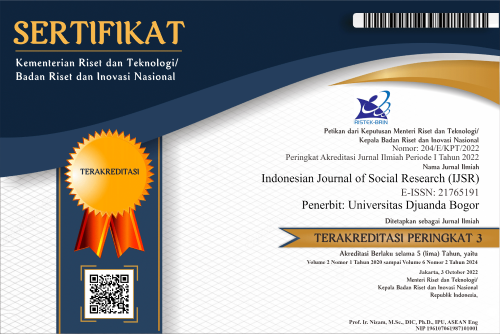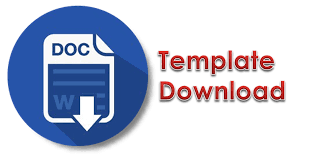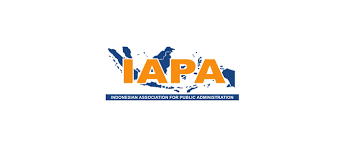Creating an Alternate Field Experience Framework for University-Based Preservice Teacher Education in the COVID-19 Nigeria
Abstract
It is widely reported that several institutions of higher learning in various parts of the world attempted to mitigate the risks of learning disruptions occasioned by school closures, by switching to the online system of education. In the Nigerian context however the field experience component of teacher education witnessed an unprecedented setback as the online system that was later activated in some universities failed to factor the component into the alternative arrangement. Given that the present COVID-19 is not likely to be the last, as established by various reports including the World Bank December, 2021 document, the exercise may have to be suspended or delayed whenever there are emergency school closure. This paper attempts to formulate a COVID-19 compliant field experience framework for the Nigerian setting. The formulation is based on findings from a survey of emerging COVID-19 focussed alternatives and preservice teachers. The paper whose context comprises three Nigerian public universities where the lead researcher was, at different times, a field experience assessor employs a combination of a survey method, the philosophical method, observation, document analysis, and creative synthesis. The literature, findings from the survey and online interviews with student teachers constitute the bases of the formulation.
References
Adler, P. A., & Adler, P. (1994). Observational techniques.
Adom, D., Yeboah, A., & Ankrah, A. K. (2016). Constructivism philosophical paradigm: Implication for research, teaching, and learning. Global Journal of Arts Humanities and Social Sciences, 4(10), 1–9.
Aglazor, G. (2017). The role of teaching practice in teacher education programmes: Designing framework for best practice. Global Journal of Educational Research, 16(2), 101–110.
Allan, P. (1997). Designing a School Curriculum. Allyn & Bacon
Besser, E. R. (2020) Video Instruction Transparency During COVID-19 Modelling for Student Teachers. In Ferdig, R.E., Baumgartner, E., Hartshorne, R., Kaplan- Rakowski, R., & Mouza, C. (Eds). Teaching, Technology, and Teacher Education During the COVID-19 Pandemic: Stories from the Field. Association for the Advancement of Computing in Education (AACE). Retrieved June 15, 2020.from https://www.learntechlib.org/p/216903/.
Boynton, P. M., & Greenhalgh, T. (2004). Selecting, designing, and developing your questionnaire. Bmj, 328(7451), 1312–1315.
Casinillo, L., & Suarez, M. (2022). Evaluating Attributes, Traits and Competencies of a School Leader: A Descriptive Correlational Study. Indonesian Journal of Social Research (IJSR), 4(1), 40–53.
Cresswell, J. W., & Plano Clark, V. L. (2011). Designing and conducting mixed methods research. Sage
Eisner, E. W. (2017). The enlightened eye: Qualitative inquiry and the enhancement of educational practice. Teachers College Press.
Fore, H.H. & Malpass, D. (2021). Reversing the Pandemic Education Losses. A Joint UNICEF-World Bank Report. December, 2021
Fossey, E., Harvey, C., McDermott, F., & Davidson, L. (2002). Understanding and evaluating qualitative research. Australian & New Zealand Journal of Psychiatry, 36(6), 717–732.
Gebhard, J.G. (2009). 'The Practicum'. In A.Burs & J.C. Richards (Eds), The Cambridge
guide to second language teacher education (pp. 250-258). USA: CUP.
Hendrith, S., Banks, C., & Holland, A. (2020.). Preservice Teacher Perceptions of Transition to an Electronic Portfolio as a Substitution for Practicum Experience.
Jorgensen, E. (2006). On philosophical method. University Press.
Kliebard, H. M. (1992). Success and failure in educational reform. Forging the American Curriculum. New York City: Routledge.
Koch, B., & Vu, P. (2020). Virtual Field Experience and Mock Interview Opportunities for Preservice Special Education and Secondary Teachers. Teaching, Technology, and Teacher Education During the COVID-19 Pandemic: Stories from the field, 343–346.
Köksal, C., & Genç, E. G. (2019). İHRACAT KREDİ SİGORTALARININ İHRACAT DEĞERİ ÜZERİNDEKİ ETKİSİ: GELİŞMİŞ ÜLKELER ÜZERİNE BİR PANEL VERİ ANALİZİ. Maliye ve Finans Yazıları, 111, 155–170.
Labere, D. (1992), Teacher Education. Heritage
Lakens, D. (2021). Sample size justification. PsyArXiv. 1–31.
Lincoln, Y. S., & Guba, E. G. (1985). Naturalistic inquiry. sage.
Livers, S. D., & Piccolo, D. (2020). Using a Critical Perspective to Transition an Elementary Mathematics Methods Course to a Virtual Learning Experience.
Mollenkopf, D., Gaskill, M., Ferdig, R., Baumgartner, E., Hartshorne, R., Kaplan-Rakowski, R., & Mouza, C. (2020). Creating meaningful learning experiences for preservice and in-service teachers facing interruptions in field experience placements during the COVID-19 pandemic. Teaching, Technology, and Teacher Education during the COVID-19 Pandemic: Stories from the field, 347–354.
Monroe, L., Mendez, L., Nutta, J., Ferding, R., Baumgartner, E., Hartshorne, R., Kaplan-Rakowski, R., & Mouza, C. (2020). Virtually remote: How interrupted internships continued in a virtual classroom. Teaching, Technology, and Teacher Education during the COVID-19 Pandemic: Stories from the field, 303–308.
Moser, C. A., & Kalton, G. (2017). Survey methods in social investigation. Routledge.
Murphy, T. (2007). Jack Mezirow and perspective transformation: Toward an understanding of Irish educational policy within a European framework. Policy Futures in Education, 5(4), 491–496.
O’leary, Z. (2014). Primary data: Surveys, interviews and observation. The Essential Guide to Doing Your Research Project, 201–216.
Ornstein, A. C., & Hunkin, F. (2004). Foundations, principles and issues.
Owen, G. T. (2014). Qualitative methods in higher education policy analysis: Using interviews and document analysis. The Qualitative Report, 19(26), 1.
Patton, M. Q. (2002). Qualitative research & evaluation methods. Sage.
Rufai, S. A. (2012). Proposing and Islamic Alternative to Dominant Western and Islamic Models of Teacher Education Curriculum: An Attempt at Curriculum Construction. ASEAN Journal of Teaching & Learning in Higher Education, 4(1).
Samuel, M. (2002). Working in the rain: Pressures and priorities for teacher education curriculum design in South Africa: A case study of the University of Durban-Westville. International Journal of Educational Development, 22(3–4), 397–410.
Saylor, J., Alexander, W., & Lewis, A. (1981). Curriculum Planning for Better Teaching and Learning. New York: Holt. Reinehart and Winston.
Stevick, E.W. (1980). Teaching Languages: A way and ways. Rowley, MA: Newbury House
Tom, A. R. (1997). Redesigning teacher education. Suny Press.
Copyright (c) 2022 Indonesian Journal of Social Research (IJSR)

This work is licensed under a Creative Commons Attribution-ShareAlike 4.0 International License.
The Authors submitting a manuscript do so on the understanding that if accepted for publication, copyright publishing of the article shall be assigned/transferred to Indonesian Journal of Social Research (IJSR) Universitas Djuanda as Publisher of the journal. Upon acceptance of an article, authors will be asked to complete a 'Copyright Transfer Agreement'. An e-mail will be sent to the corresponding author confirming receipt of the manuscript together with a 'Copyright Transfer Agreement' form by online version of this agreement.
Indonesian Journal of Social Research (IJSR) Universitas Djuanda, the Editors and the Editorial Board make every effort to ensure that no wrong or misleading data, opinions or statements be published in the journal. In any way, the contents of the articles and advertisements published in the Indonesian Journal of Social Research (IJSR) Universitas Djuanda are sole and exclusive responsibility of their respective authors and advertisers.
Remember, even though we ask for a transfer of copyright, our journal authors retain (or are granted back) significant scholarly rights as mention before.
The Copyright Transfer Agreement (CTA) Form can be downloaded here: Copyright Transfer Agreement-IJSR 2020
The copyright form should be signed electronically and send to the Editorial Office e-mail below:
Dr. Rasmitadila, M.Pd (Editor-in-Chief)
Universitas Djuanda
Jl. Tol Jagorawi No.1, Ciawi, Kec. Ciawi, Bogor, Jawa Barat 16720
Website: http://journal.unida.ac.id/index.php/IJSR/index
Email: ijsr@unida.ac.id





4.png)



